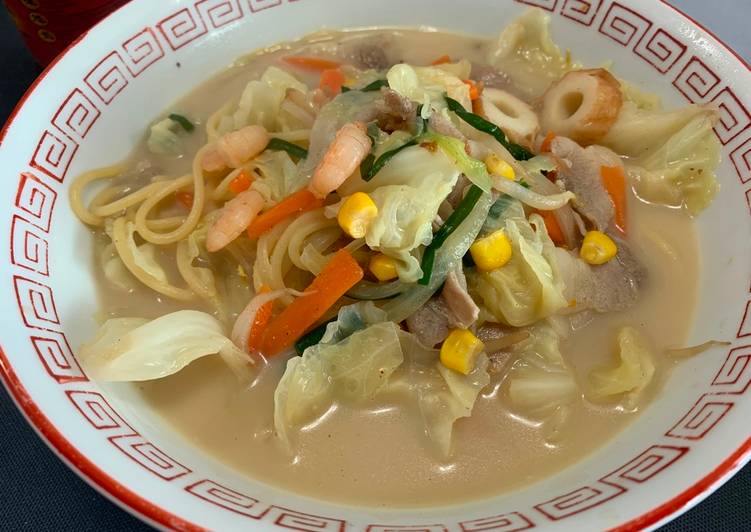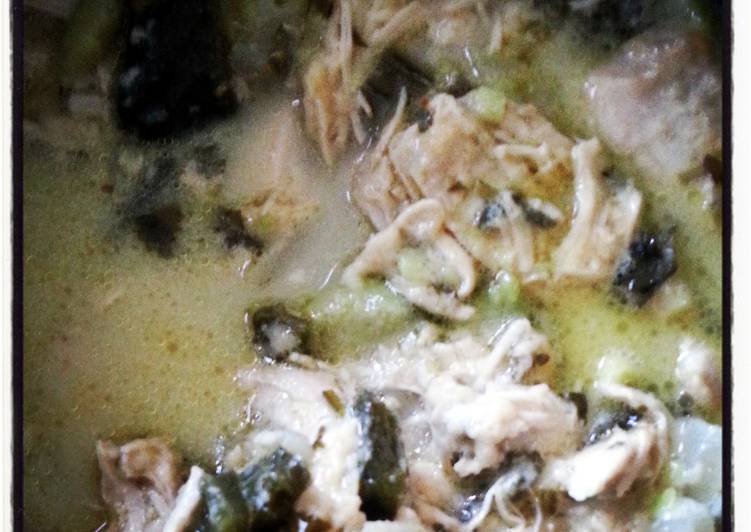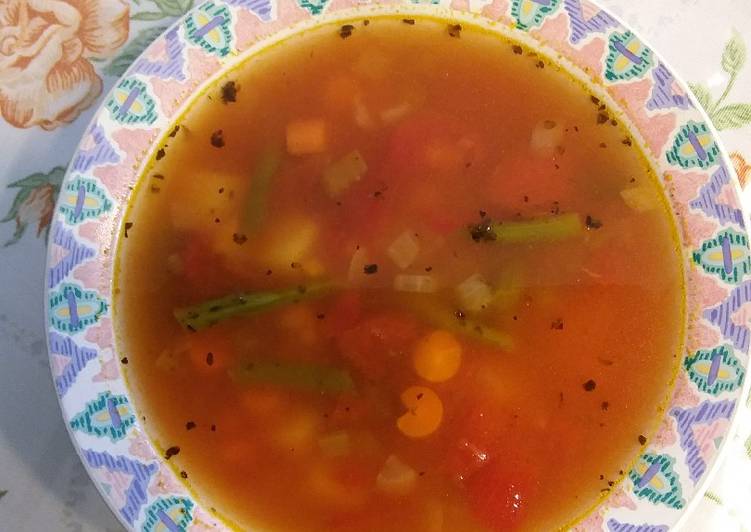
Hello everybody, it’s Drew, welcome to our recipe page. Today, I’m gonna show you how to prepare a special dish, champon (the noodle in nagasaki). It is one of my favorites. This time, I will make it a little bit unique. This is gonna smell and look delicious.
Low Prices on Japanese Noodles Nissin. Free UK Delivery on Eligible Orders Champon (ちゃんぽん, Chanpon), also known as Chanpon, is a noodle dish that is a regional cuisine of Nagasaki, Japan. There are different versions in Japan, Korea and China. The dish was inspired by the cuisine of China.
Champon (the Noodle in Nagasaki) is one of the most well liked of current trending foods in the world. It’s simple, it is quick, it tastes delicious. It is appreciated by millions daily. Champon (the Noodle in Nagasaki) is something that I’ve loved my whole life. They are nice and they look wonderful.
To get started with this recipe, we have to prepare a few ingredients. You can have champon (the noodle in nagasaki) using 10 ingredients and 7 steps. Here is how you can achieve that.
The ingredients needed to make Champon (the Noodle in Nagasaki):
- Get 400 grams Cooked Hokken Noodle (or 200 grams Pasta)
- Take 200 grams Meet (Pork or Chicken)
- Prepare 200 grams Seafood (Prawn, Squid, Shellfish)
- Get 400 grams Vegetables (Cabbage, Bean Sprout, Onion, Carrot, Corn, French Bean, Spring Onion, Chinese Chives)
- Take 100 grams Fish cake
- Get <Soup>
- Make ready 4 tsp Chinese Soup Stock (Chicken Soup Stock)
- Prepare 2 tsp Soy Sauce
- Prepare 1000 ml Water
- Prepare 100 ml Milk
Champon is a Japanese noodle dish and a Nagasaki specialty made by frying pork, seafood, and various vegetables in lard, then adding a chicken-pork bone soup and boiling the noodles in the combination. The dish is based on Chinese cooking and takes its inspiration from a dish originating from the Chinese province of Fujian. Champon is a Japanese noodle dish and a Nagasaki specialty made by frying pork, seafood, and various vegetables in lard, then adding a chicken-pork bone soup and boiling the noodles in the combination. The dish is based on Chinese cooking and takes its inspiration from a dish originating from the Chinese province of Fujian.
Instructions to make Champon (the Noodle in Nagasaki):
- Cut all ingredients to an easy-to-bite size. (You can choose your favorite meat and vegetables, seafood.)
- Stir-fry the meat and seafood in a deep pan. Add hard vegetable and fry. Add the soft vegetable, fish cake and fry.
- When the vegetable become soft, add 1000 ml water, 4 tsp Chinese Soup stock and 2tsp Soy Sauce. When it boils, add 100 ml milk.
- When it boils again, bring the ingredients to the edge and put the noodles in the soup. Boil it about 2 minutes.
- If you cannot find Hokken Noodle, use 200 grams Pasta. Boil the water, add 1 tbsp salt and 1 tbsp baking soda per liter of water. Cook the Pasta according to the instruction on the package. Drain it well and wash the noodle’s surface with running water.
- Cooked Hokken Noodle $1.40 at FairPrice
- I used this fish cake. Choose your favorite fish cake!
Champon is a Japanese noodle dish and a Nagasaki specialty made by frying pork, seafood, and various vegetables in lard, then adding a chicken-pork bone soup and boiling the noodles in the combination. The dish is based on Chinese cooking and takes its inspiration from a dish originating from the Chinese province of Fujian. Champon (ちゃんぽん) is a noodle soup dish consisting of pork, seafood, and vegetables served on top of the noodles. The owner of a Chinese restaurant Shikairō (四海楼) in Nagasaki first created this dish based on a Chinese dish tonniishiimen (湯肉絲麵). However, it was not completely closed, as there were four seaports that were allowed to stay open for trade.
So that is going to wrap it up with this special food champon (the noodle in nagasaki) recipe. Thanks so much for reading. I’m sure that you can make this at home. There is gonna be interesting food at home recipes coming up. Remember to bookmark this page in your browser, and share it to your loved ones, friends and colleague. Thanks again for reading. Go on get cooking!

